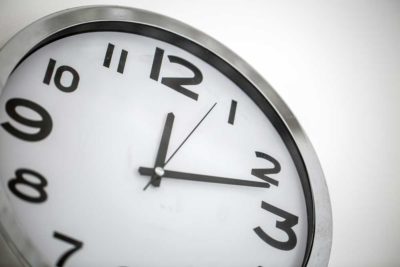How Long Does Alcohol Withdrawal Take?
In our fast-paced society, we’re all conscious of time. When facing something like alcohol withdrawal, it’s only natural to be particularly concerned about how long the process will take. The short answer is that it varies for each individual. In general, alcohol withdrawal can take anywhere from 24 to 72 hours to several weeks. Here’s what you need to know about the process.
What is Alcohol Withdrawal?
If you have been drinking heavily for an extended period of time—anywhere from a few weeks to many years—and you suddenly stop or significantly reduce your alcohol consumption, you will go into alcohol withdrawal. Over time, your body gets used to the constant influx of alcohol. The effects are particularly strong in the brain, where alcohol produces feelings of relaxation and calmness. Chronic alcohol consumption disrupts brain chemicals called neurotransmitters. When you stop drinking or cut way back, the neurotransmitters that were previously suppressed rebound, sending your brain into a hyper-excitable state—the opposite of relaxed and calm. Symptoms of withdrawal include anxiety, agitation, irritability, and tremors. In severe cases, withdrawal can lead to rapid heart rate, fever, seizures or delirium tremens (DTs) and potentially death.
Severe alcohol withdrawal is a medical emergency. For this reason, it’s best to undergo withdrawal in a reputable treatment center, staffed with professionals trained to give appropriate support. If you are going through alcohol withdrawal at home and experience seizures, fever, severe confusion, irregular heartbeat, or hallucinations, call 911 immediately.
Alcohol Withdrawal Timeline & Symptoms
This timeline gives a more accurate description of what happens during alcohol withdrawal and explains how long the process can take. Keep in mind the length and severity of alcohol withdrawal vary based on many factors, including:
- How long the individual has been drinking
- How much the individual drinks
- If the individual is also dependent on other drugs
- If the individual has other medical problems
- If the individual struggles with a co-occurring mental disorder
After a chronic heavy drinker takes his or her last drink:
Within 6 to 12 hours:
Mild alcohol withdrawal symptoms can set in as early as six hours after a person has his last drink. In fact, the person may still have alcohol in his system when symptoms begin. These symptoms may include sweating, nausea, vomiting, mild anxiety, headache, insomnia, and shaky hands.
Within 12 to 24 hours:
A person may start to experience visual or auditory hallucinations; in other words, she may start hearing and seeing things that aren’t there. This is called “alcoholic hallucinosis.” This is not the same as the hallucinations that occur with DTs. In most cases at this stage, the person will realize the hallucinations associated with alcoholic hallucinosis are not real.
Within 24 to 48 hours:
Withdrawal seizures usually start, although it’s possible for seizures to occur as early as two hours after the last drink. Risk of seizures is particularly high in people who have undergone alcohol detox several times before.
Within 48 to 72 hours:
This is the peak of alcohol withdrawal. About two to three days after a heavy drinker’s last drink, DTs set in. People are particularly at risk for DTs if they are older, have an abnormal liver function, suffer from another acute medical illness, or have a history of withdrawal seizures or DTs. Symptoms of DTs include severe tremors, profuse sweating, low-grade fever, disorientation, seizures, high blood pressure, racing or irregular heartbeat and hallucinations. The hallucinations associated with DTs are mainly visual, and the person cannot distinguish them from reality. For many suffering from alcohol withdrawal, these hallucinations seem completely real, which can be frightening.
After 72 hours:
Physical symptoms start to fade. However, in some cases, withdrawal symptoms can remain intense for several weeks. Even after the initial symptoms have passed, people can continue to struggle with alcohol cravings for months or years. Ongoing treatment helps recovering addicts deal with these persistent symptoms.
Treatment for Alcohol Withdrawal:
The safest place to undergo the withdrawal process is under the care of skilled addiction treatment south Florida. Medical treatment for withdrawal can help reduce the severity of symptoms, prevent possible complications, and provide ongoing support to help people stop drinking for good. Treatment is usually based on a person’s individual needs and may include medication, therapy and other types of medical care. Some programs also use herbs and supplements, including vitamin B1, folic acid, iron, and herbal teas and broths. Others may incorporate stress relieving techniques, such as meditation and yoga.
Florida alcohol addiction treatment is the first step in overcoming alcohol abuse and starting the new life you or your loved one deserves. Yet, it is important to remember that detox is just that—a first step. To maintain sobriety, long-term support is just as important.


